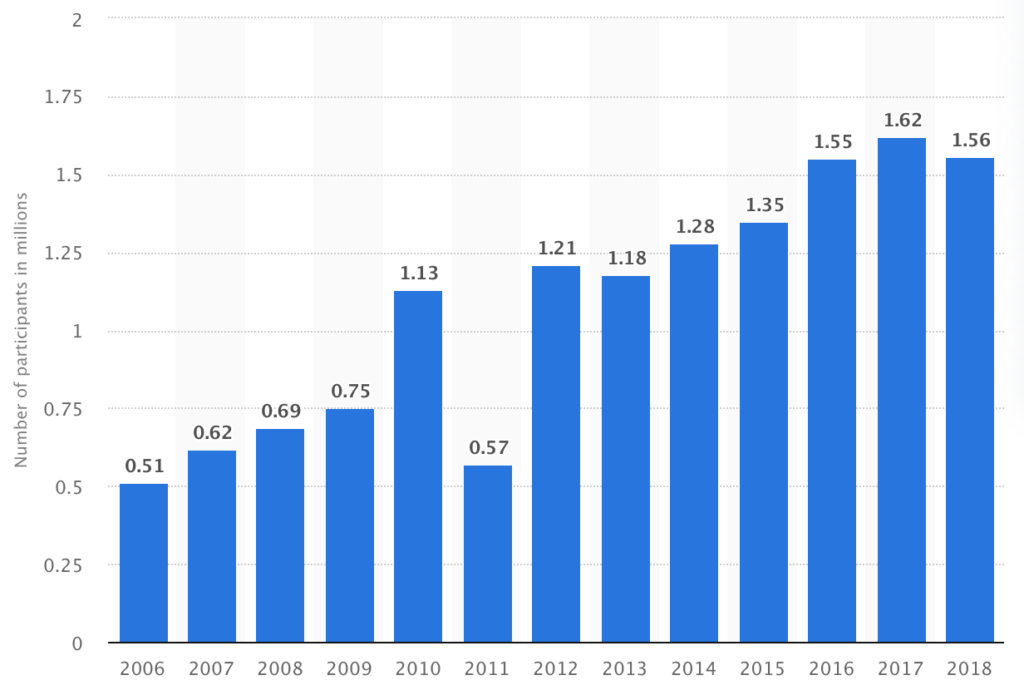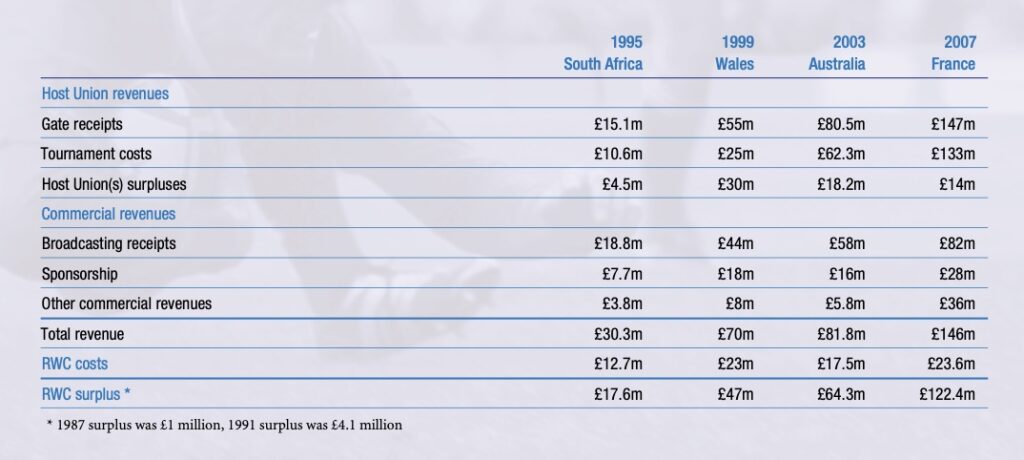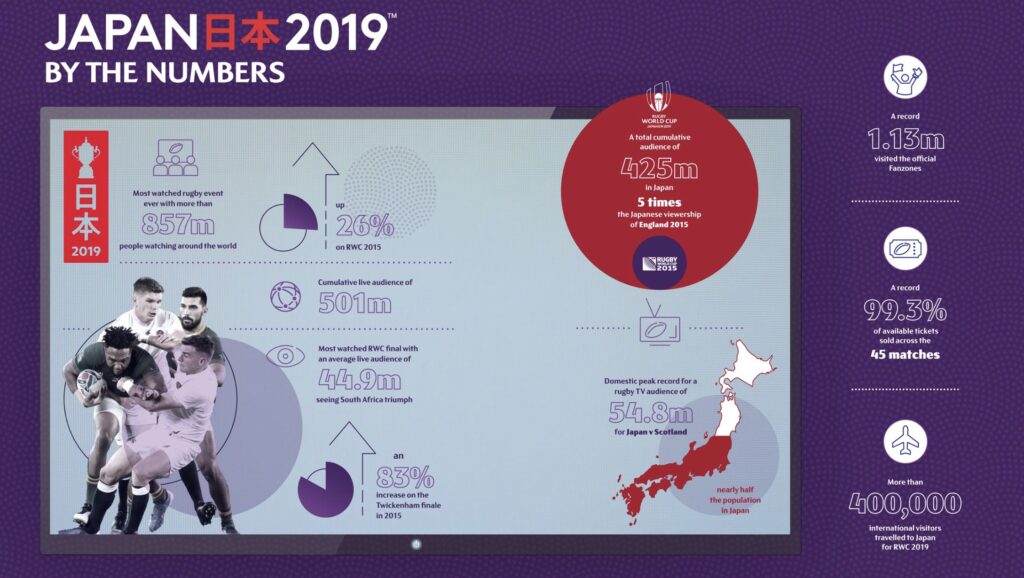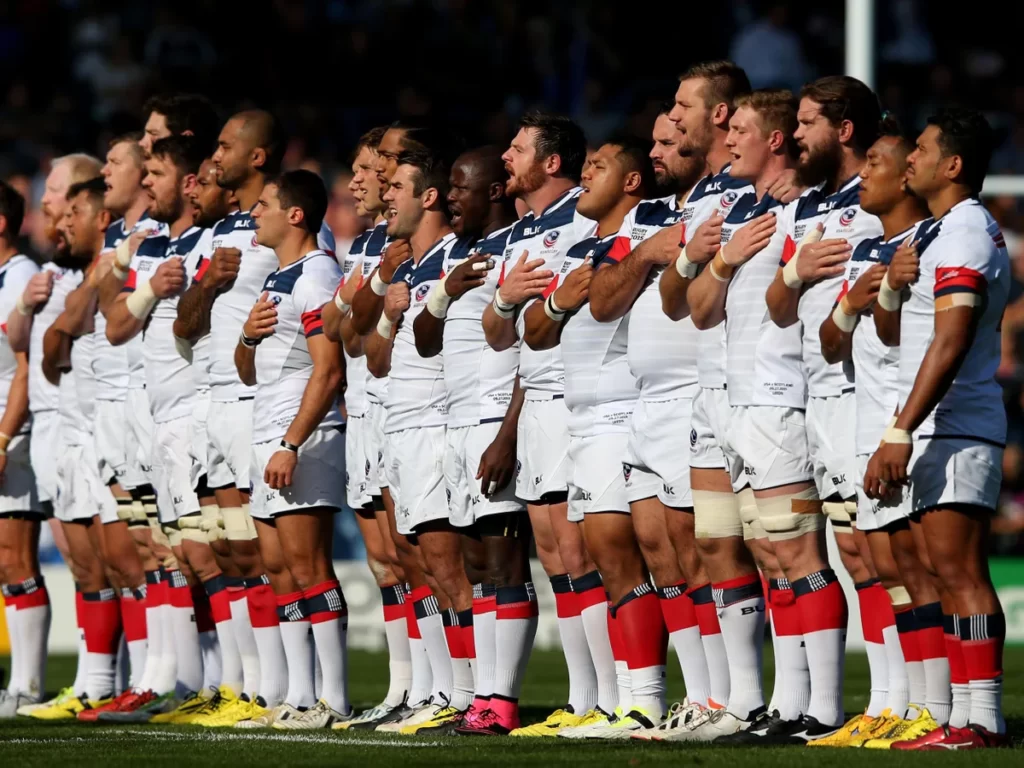Ladies and gentlemen
Following a World Rugby Council meeting in Dublin last week, World Rugby announced the host nations for all the World Cups from 2025-33. It was confirmed that Australia will host the men’s World Cup in 2027 and the women’s showpiece in 2029, and for the first time, the sport will break new ground by taking the men’s 15-a-side tournament to North America. The United States, which the governing body regards as an area of untapped potential in both a commercial and sporting sense, was confirmed as host of the men’s showpiece event in 2031 and will stage the women’s tournament two years later.
The United States is an obvious choice for World Rugby. According to research from Nielsen, rugby is already the fastest growing sport in the United States, and with over 45 million fans, the USA is the nation with the largest number of fans in the world.

Tapping into a new market is a great way to increase revenue and expand the pool of potential rugby players and viewers for the IRB whose revenues are mostly generated from the World Cup. The IRB runs a four year business revenue cycle and relies on World Cup for 80% of its revenue during that period. The 1995 World Cup in South Africa generated R197 million (£30.3 million )in total revenue which increased by 131% to £70 million in 1999 when Wales hosted. Revenues peaked at £381.4 million when Japan hosted the 2019 World Cup with nearly £4.3billion generated in economic output according to The Economic Impact of Rugby World Cup 2019 report published by EY.

A large part of the revenues is generated by charging host nations a Tournament Fee which forms part of a package that the host nation submits in their bid. These tournament fees have risen astronomically over the years and nations now have to to make a minimal financial guarantee of £120m to World Rugby. In 2017, South Africa was the prefered candidate to host the 2023 World Cup ahead of France and Ireland. In a very dramatic and controversial move the World Rugby Council voted for France, who received 24 votes compared to South Africa’s 15 in the second round of voting
South Africa’s total guarantee totalled about £220m which consisted of the £120m fee, an additional tournament pledge of £40m, a commercial offer of £35m for hospitality, travel and private catering rights and expense savings of £25m owing to the weaker South African rand being favourable to visitors.
 France put together a package worth in the region of €500m. Their total guarantee to World Rugby was £150m which exceeds the minimum fee by £30m alongside offering to buy the hospitality programme and marketing rights from World Rugby for a combined €112m and pledging €236m to cover tournament expenses. This ultimately won them the bid as unfortunately, the Franc goes a lot further than the rand for World Rugby.
France put together a package worth in the region of €500m. Their total guarantee to World Rugby was £150m which exceeds the minimum fee by £30m alongside offering to buy the hospitality programme and marketing rights from World Rugby for a combined €112m and pledging €236m to cover tournament expenses. This ultimately won them the bid as unfortunately, the Franc goes a lot further than the rand for World Rugby.
Hosting the World Cup would have been challenging considering the state of the economy hence South Africa dropped the bid for the 2023 hosting rights but SA Rugby projected that hosting the event would bring in R27 billion in direct and indirect economic impact. Forecasts showed that hospitality sales and the favourable exchange rate would have helped the country to achieve a profit of roughly R1.1 billion on hosting the tournament. It was estimated that R5.75 billion of the estimated R27 billion that would have flown into the country would have directly impacted low-income groups and created 38 600 permanent and temporary jobs, generating revenue to the tune of R1.4 billion.
Japan was wildly successful with over 850 million people tuning in to watch around the world through 28 broadcasters that had acquired rights to the tournament across a range of territories. World Rugby revealed a record 99.3 per cent attendance across the tournament and the final saw a record attendance of 70,103. With the success of the Japanese World Cup and looking ahead to the showpiece in America, it’s no wonder that the IRB has set their sites on the Americas.

Rugby is growing quickly in the USA and according to Nielsen Data, the country has the largest number of rugby fans in the world with 45 million people saying they are interested in the sport. Rugby participation in the U.S. has grown by 350% since 2004 and college Rugby is the fastest growing sport in the U.S, with over 33 million people either playing or interested in rugby. There are now more than 115,000 registered players with USA Rugby, including 32,000 college students and approximately 29,000 females. With 25% of the participation coming from women, this places the U.S. with the highest percentage of female participation from any nation.
 The USA has pledged $500 million towards hosting the men’s and woman’s tournaments with organisers optimistic of generating $1 billion in revenue from ticket sales alone with the U.S bid also aiming for an average of 55,000 spectators per game in the men’s tournament.
The USA has pledged $500 million towards hosting the men’s and woman’s tournaments with organisers optimistic of generating $1 billion in revenue from ticket sales alone with the U.S bid also aiming for an average of 55,000 spectators per game in the men’s tournament.
Sadly, South Africa is unlikely to see another World Cup for many more years as World Rugby looks to other markets with more favourable currencies and bigger appetites to host.
Related Posts
November 12, 2025
MI Cape Town and DHL Renew SA20 Deal
MI Cape Town has renewed its sponsorship agreement with DHL
September 20, 2025
Cricket South Africa Posts R238 million Surplus
Cricket South Africa (CSA) released its 2024/25 Integrated Report today,…
July 23, 2025
Canal+ Acquisition Of MultiChoice Approved
South Africa’s Competition Tribunal has granted conditional approval to French…




[…] There is also an excellent summary of the financials involved and proposed in hosting the Rugby World Cup offered by Nqobile Ndlovu published on Cashnsport. […]